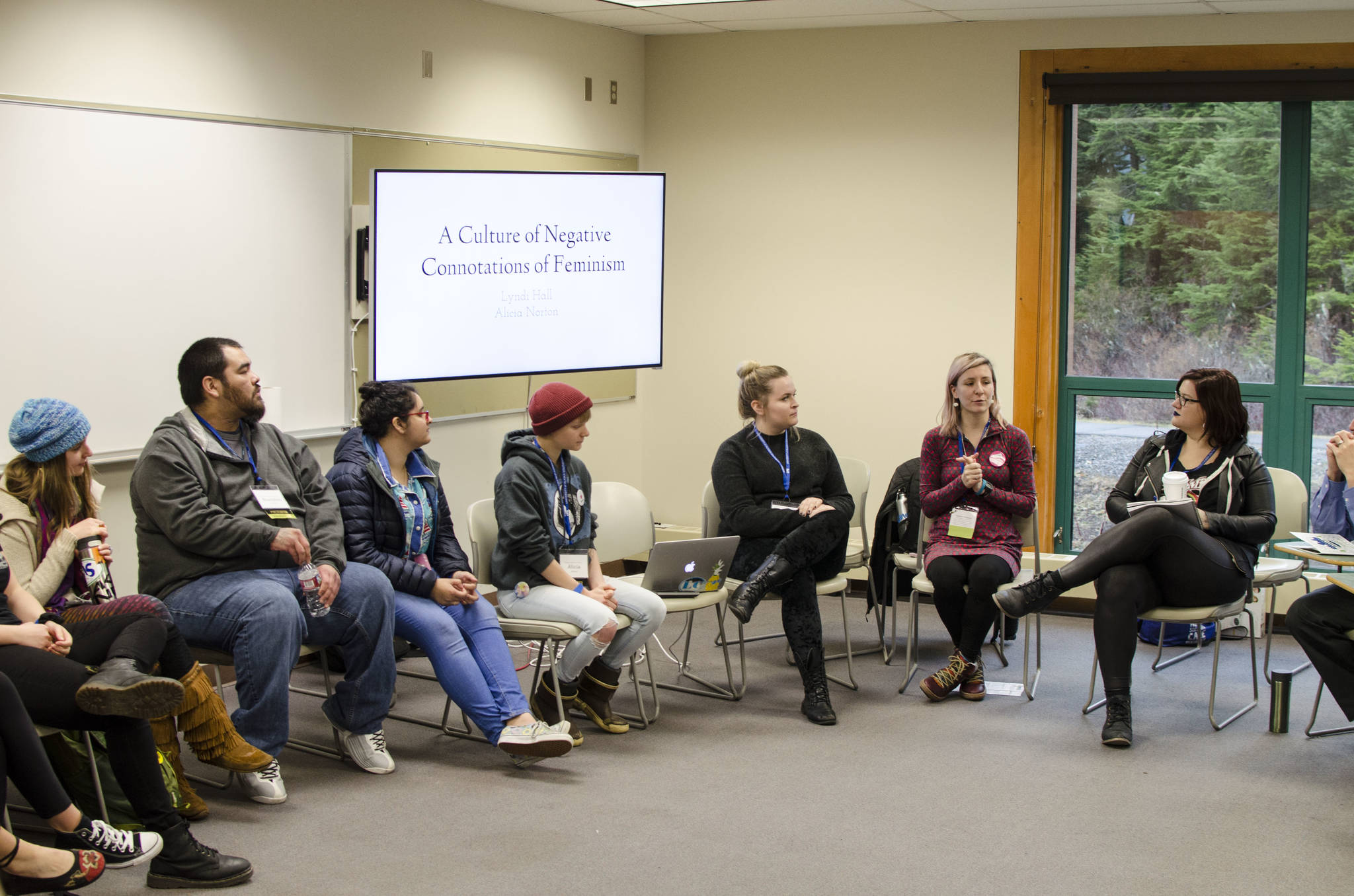Tuesday, Nov. 7 marks the University of Alaska Southeast’s second Power & Privilege Symposium. The all-day event is meant to spark conversations within the community about how power and privilege play a role in society through race, ethnicity, gender, sexuality, age, religion, body size, ability, mental illness, and class.
One of the co-chairs of the symposium committee, UAS first-year experience advisor Nathaniel Bodenstadt, said there were more than 400 attendees in 2016.
“Last year we were amazed at the community turnout. Last year we had high school teachers bringing their students to campus. …the symposium gave everyone who was there an opportunity to come together and have a conversation on a lot of different topics, but under this broad umbrella of power and privilege — and just create connections and think about where we are and where we want to be,” he said. “I think being involved in something like that can be very empowering, and very engaging, and certainly a wonderful learning opportunity wherever you are on the spectrum of your knowledge base on power and privilege.”
The event is structured around morning, afternoon, and evening keynote speakers. In between, there will be a variety of simultaneous breakout sessions. Bodenstadt said that last year there were a few sessions on the subject of decolonization and race, as well as a focus on LGBTQ and human rights, noting this symposium will also discuss Islamaphobia and Confederate memorials.
“I’ve been approached both ways, from the ‘oh my gosh, this is ridiculous’ to ‘this was really powerful.’ Certainly last year, having our symposium the day after the election was quite an emotionally engaged day… A lot of people really came in that morning feeling very defeated, quite honestly. We got comments throughout the day, like one, the event itself really helped to kind of demonstrate that regardless of what was happening at the top that there was a lot of grassroots work to be done. But also we had people who walked out of specific sessions where they maybe hadn’t thought about it much before,” he said.
“I can’t speak on every presenter but I did present last year. When I did my session last year, which was on the concept of intersectionality and listening, having conversations and just understanding someone else’s lived experiences, people walked out and said ‘I didn’t really know what to expect of this. I wasn’t really sure about me going and opening up to people I don’t really know about what my life was like, but I’m really glad that I had this experience, and am glad that I learned about others.’ That was quite a powerful experience for me to have. In terms of the symposium, I think I had less than 15 people at my session, but they all felt like it was very impactful,” Bodenstadt said.
New this year will be a classroom set aside for general discussion, so people can continue conversations generated by a session. There will also be a pop up art gallery put together by Persisters, an activist women’s art collective in Juneau.
“From a logistical standpoint, we recognize that there are some really powerful conversations that happen through art. We had some breakout sessions that talked about art last year. We also recognize that there is value in having something up and available all day for people to come and look at and think on, so we wanted to add that. Persisters will also have a breakout session at the end of the day on the influence of art and culture on society,” Bodenstadt said.
The three keynote speakers are Ernestine Hayes, Forest Raven, and Dr. Barb (QasuGlana) Amarok. Hayes, who is Alaska’s Writer Laureate and a professor at UAS, will give a talk called “Empty Boxes,” which is about challenging structures of power and privilege and looking at how people can dismantle barriers that slow progress. Well-known in Alaska for her work, she was an easy pick for the morning keynote, Bodenstadt said. Her selection was also inspired by the breakout session she led with professor Xhunei Lance Twitchell.
“They talked about this idea as indigenous peoples and in academia that there was often a mentality of people who were not indigenous having done research, feeling they were experts, and then (being) able to say ‘This is who you are and what happened to you,’ almost a racial version of mansplaining. … I thought that was a really powerful conversation to have,” Bodenstadt said.
Afternoon keynote Haven, a Ph.D. student in cultural anthropology at the University of California, Irvine, is from Metlakatla and received her bachelor’s degree in social science from UAS. Her talk “Economies of Identity: Tradition, Power, and the Adjudication of Nativeness,” explores the question of what it means to be Alaskan Native.
Evening keynote Amarok’s talk “Pedagogy of Power and Privilege” will discuss formal school in the U.S. with a focus on Alaska, and how the educational system “continues to frame pedagogy as colonizing,” states the symposium webpage.
This event is free and open to the public. Most UAS classes will be cancelled so students can attend the event. Preregistration is requested and can be done at: http://bit.ly/2i8Mj0X, though people can also register upon arrival. The keynote speeches and several of the breakout sessions in the Egan Lecture Hall will be streamed live and can be accessed at the above web address. For more information and to see the individual breakout sessions, go to the webpage.
Clara Miller is the Capital City Weekly’s staff writer. She can be reached at clara.miller@capweek.com.

